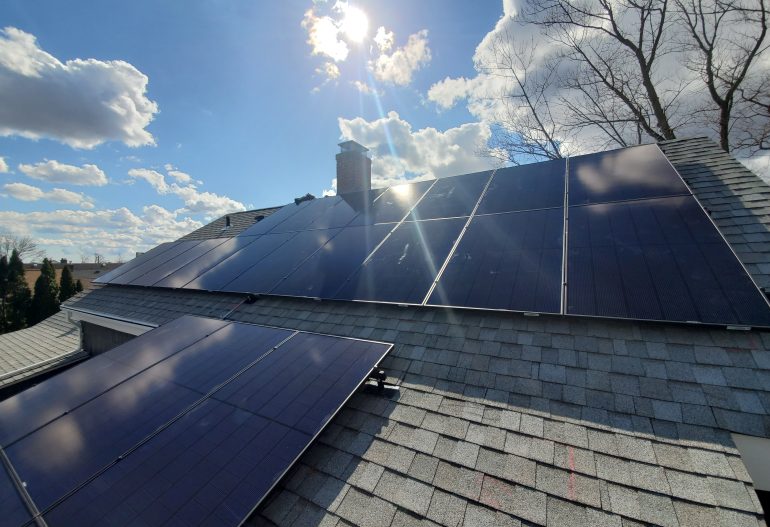More residential solar will be installed in the next two years than in the prior 40 years combined, with homeowners citing various reasons—from electricity cost savings to reducing their carbon footprint. All signs are pointing toward solar being the power of the future, with the benefits far outweighing any reason to stick with traditional electricity.
Cost Savings
Electric rates in the Northeast are surging for a second consecutive winter, with Rhode Island residents experiencing a 25% spike in their monthly electric bill and Connecticut residents also experiencing a dramatic electric rate increase. The Massachusetts Department of Public Utilities has taken a big step considering increases in their state, ordering utility providers to split the coldest months of the year for their service periods to help ease the financial burden. Solar offers a substantial decrease in monthly electric costs by rarely relying on the electrical grid since solar panels generate the home’s energy needs. This leaves homeowners with little to no utility bill and only the minimal monthly costs of their financed solar energy system. For those who pay for solar with cash out-of-pocket, they have eliminated their electric costs altogether.
Predictability
Solar power provides homeowners with predictability, month after month and year after year.
Many homeowners struggle with the surge in electric rates when the cold winter months arrive. They find it difficult to prepare, not knowing if the spike will be moderate or extreme from one year to the next. Storms and other major weather events further exacerbate the unpredictability, with electric providers often passing along the extra costs to homeowners in the form of increased delivery fees. Solar eliminates this issue, offering homeowners predictability from season to season.
Tax Credits
Generous federal tax credits are incentivizing homeowners to switch to solar, making it more affordable than ever before. The tax credits apply to those who buy solar panels and own their home. If you install solar prior to December 31, 2032, you are entitled to a federal income tax credit equal to 30% of eligible expenses. There is no limit, making this credit applicable if you spend $10,000 or $100,000 on your solar energy system. After 2032, the tax credit reduces to 26%, then drops to 22% in 2034.
Renewable
Many homeowners are choosing solar as their energy source of the future due to its tremendous environmental benefits. With the effects of global warming becoming increasingly clear, solar has been top-of-mind for environmentally-conscious homeowners with a desire to reduce their use of fossil fuels. Photovoltaic (PV) solar panels last up to 30 years, saving 30 years of emissions that would have otherwise come from gas or coal.
Considering solar? Use our Solar Savings Calculator to obtain a custom solar savings estimate for your home. We invite you to learn more about Smart Green Solar, our core values, and our unique approach–which has led to us becoming a leading full-service provider in Rhode Island, Massachusetts, and Connecticut.







